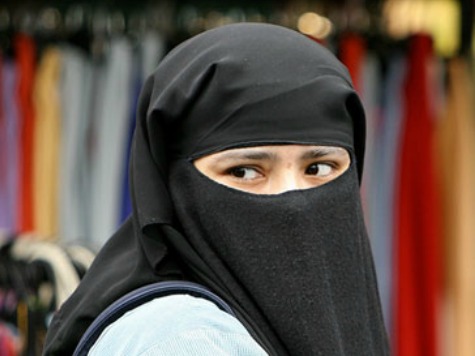 For the first time in history, and in the wake of the December 1st stabbing death of an American teacher in Abu Dhabi by a woman wearing a burqa, Gulf region media are questioning whether the burqa is a security risk.
For the first time in history, and in the wake of the December 1st stabbing death of an American teacher in Abu Dhabi by a woman wearing a burqa, Gulf region media are questioning whether the burqa is a security risk.
Historically, other Muslim and Arab governments, as well as feminist activists, have not only questioned the burqa–they have also abolished it. Such countries include Turkey, Egypt, the Maghreb, Iran, and Afghanistan. Educated Muslim women living in large cities in these countries went unveiled for at least 100 years. However, Saudi Arabia and environs, and rural regions in the Arab and Muslim world, have never really abandoned the Islamic Veil. It has now returned with a vengeance across the Middle East, Central Asia, and parts of Africa.
Thus, it is somewhat amazing and a welcome relief that some newspapers in the UAE are wondering whether the burqa should not be worn “for security reasons.” One journalist titled his piece succinctly: “The Niqab Crime, and the Niqab is a Crime.”
For a long time, Dr. Daniel Pipes has argued that the burqa is a security risk. He has also kept a log of crimes, both terrorist and otherwise, committed by both men and women hiding beneath burqas. They are able to do so since enforcers of Islamic customs have trained everyone to treat masked burglars, killers, and human homicide bombers with the utmost respect. This includes non-Muslims too.
I have argued that the West should ban the burqa not only on security grounds but also on human rights and women’s rights grounds. Niqab (a face veil) and burqa (a head, face, shoulder, and body covering) function as sensory deprivation isolation chambers and as ambulatory body bags. They completely compromise a woman’s ability to see, walk safely, feel the sun on her face, engage in friendly conversation with others. The burqa also induces anxiety, claustrophobia, depression, and ultimately, very low self-esteem.
Someone whose face is completely masked cannot be identified. She cannot function in a professional capacity among non-relatives and infidels. One might almost conclude that this is one of the aims of wearing a burqa. A face-masked woman will find it very difficult to eat in a public, integrated restaurant, or engage in conversation in the public marketplace.
We have also seen that Muslim women (and sometimes men) in burqas have functioned as human homicide bombs and as stabbers. Women human homicide bombers hiding beneath burqas have also blown up other Muslim women and children.
I–and some others–believe that whoever wears a burqa probably belongs to a fundamentalist family; and wherever fundamentalist families exist, they are more likely to be ruled by Islamic supremacist ideas, including that of Jihad. Such ideas may also induce feelings of persecution due to the expectation that Muslims should rule, not be ruled, and not be forced to co-exist on an equal basis with non-Muslims. Feelings of persecution may make someone more likely to follow the most radical Imams and to rejoice in or fund, enable, or join in Islamic victories over infidels or over the “wrong” kind of Muslim.
Western countries have begun to ban the burqa. France was the first to do so and it did in a religion-neutral way. This ban was upheld by the highest court in Europe, the European Court of Justice. It would be amazing but splendid if the UAE, America’s ally against Iran and ISIS, now led the way in banning the burqa in the Gulf States.

COMMENTS
Please let us know if you're having issues with commenting.